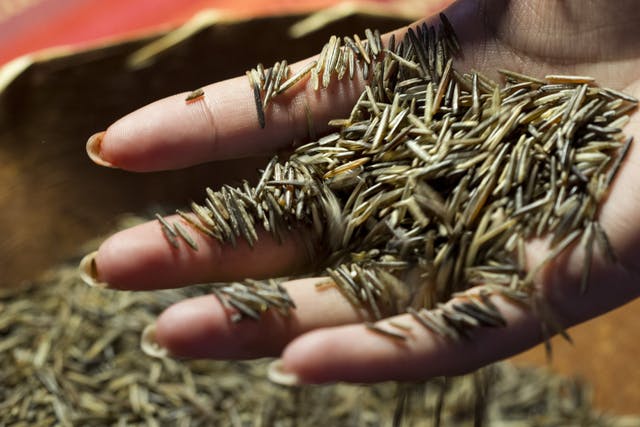This article by Jennifer Bjorhus appeared in The Star Tribune, February 9th, 2019.
Minnesota’s natural wild rice holds deep cultural, spiritual and economic importance for the state’s American Indian tribes.
Now, in one part of the state at least, the native grass holds even more: its own legal rights.
Girding for a fight against a proposed oil pipeline, the state’s largest Indian tribe, the White Earth Band of Ojibwe, has passed a tribal law granting wild rice its own enforceable legal rights, much like those enjoyed by American citizens. They include the rights to “flourish, regenerate, and evolve.” A similar law has been adopted by the 1855 Treaty Authority, a tribal group representing beneficiaries of an 1855 land pact the Chippewa tribes made with the U.S. government.
The laws make it illegal for any business or other entity to violate the plant’s rights.
It appears to be the first time in the United States that a plant species has been granted legal personhood, although last year the Ponca Tribe in Oklahoma passed what’s believed to be the first law to codify the rights of nature as a whole.
It also puts White Earth on the leading edge of an environmental movement known as “rights of nature,” championed by a Pennsylvania nonprofit called the Community Environmental Legal Defense Fund (CELDF). Attorneys with the tribe and the nonprofit say American law treats nature as property, and that environmental protection laws have failed as a result.
Whether the novel legal concept holds up in court remains to be seen.
Kevin Reuther, a veteran environmental lawyer at the Minnesota Center for Environmental Advocacy, said he’s sympathetic to the idea of nature’s legal rights, but at present it’s more philosophical than practical. MORE…

